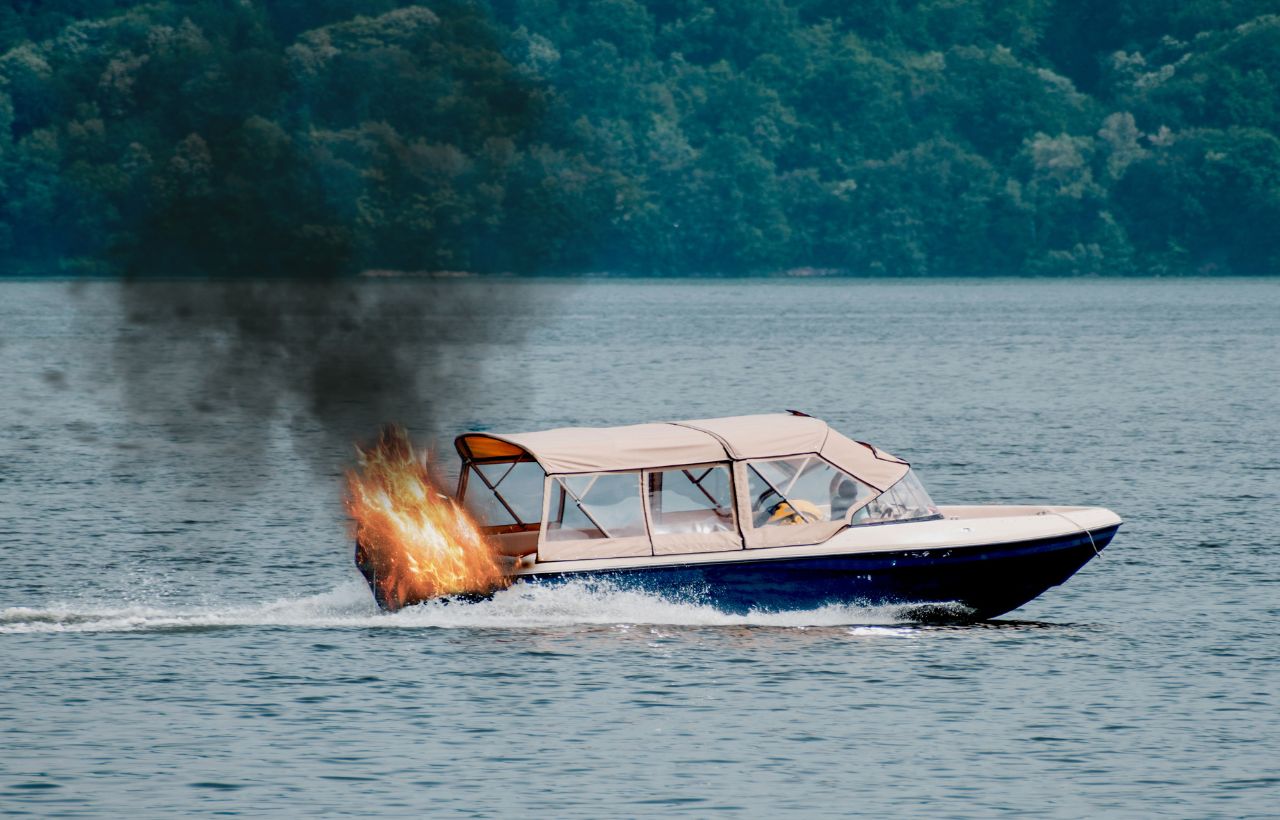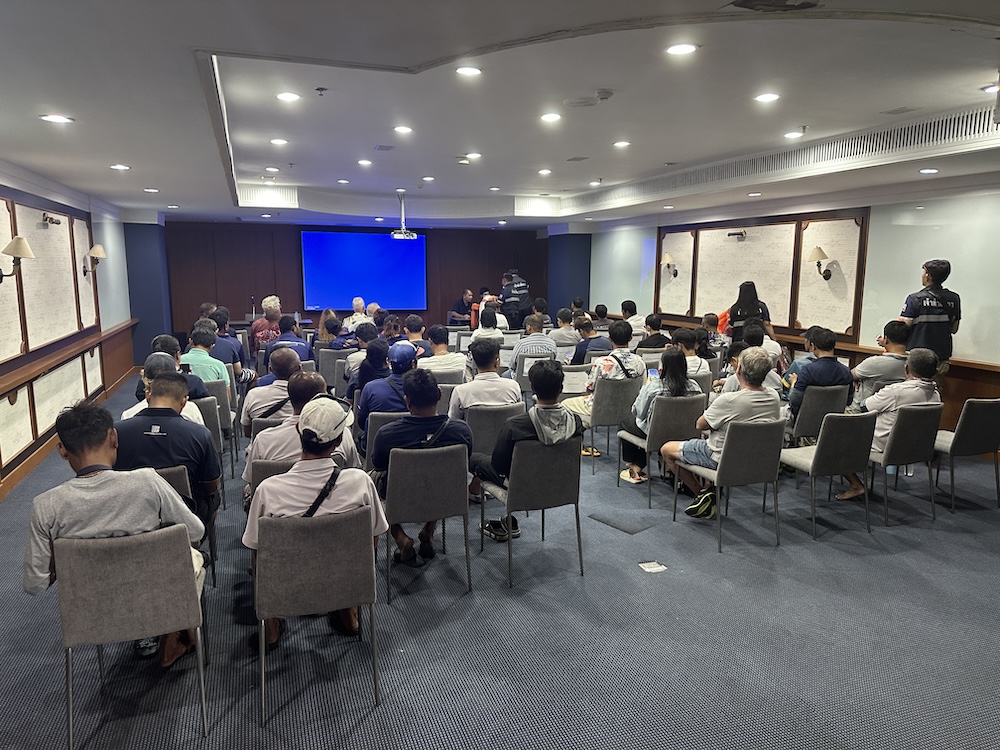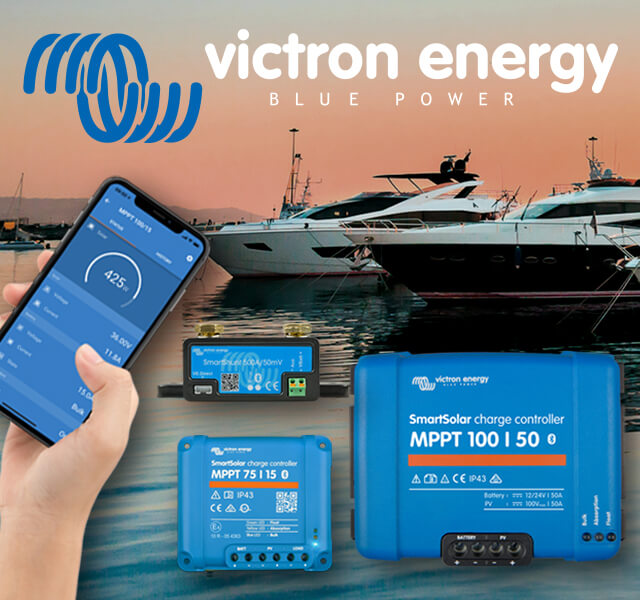It is always devastating to hear of a fire anywhere, the potential impact could be tragic, and over the past few years there seems to be a surge in boat fires, even at Ocean Marina we had a small boat fire in 2022 that thankfully was contained and didn’t spread through the marina.
Ocean Marina continually adopts international standards in equipment, processes and training to ensure that our marina staff and facilities are prepared to handle any fire emergencies. You can also help us! Most fires are preventable, we explore the common causes behind a fire outbreak and safety measures you can do to protect your boat
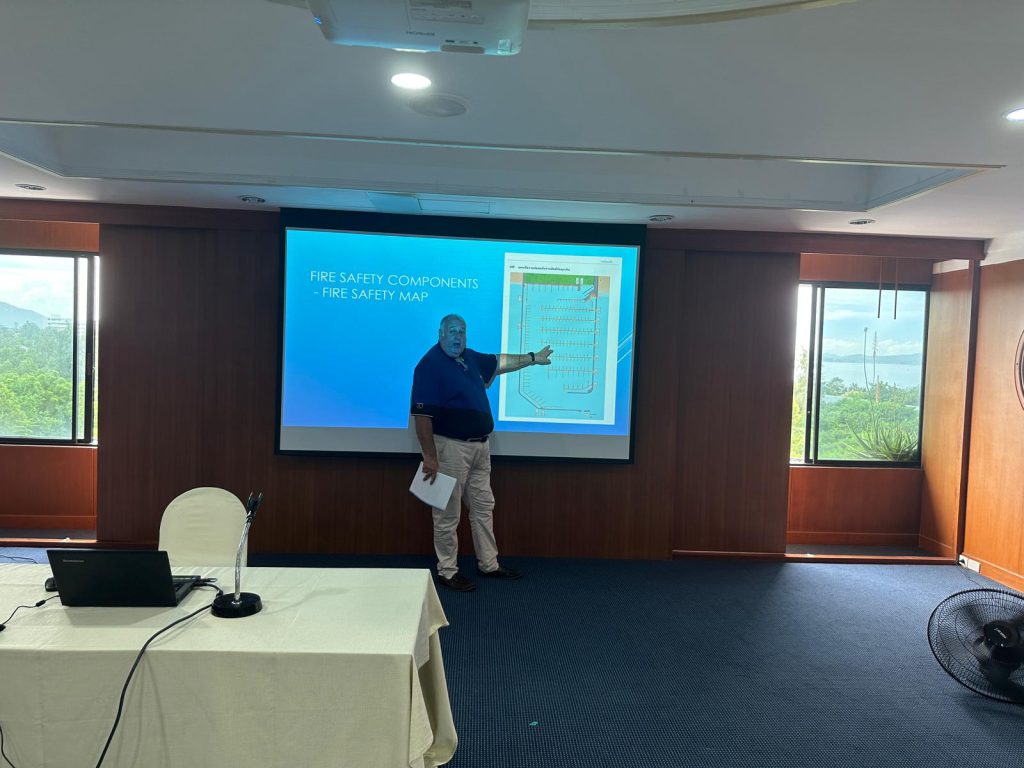
Electrical system failure is arguably the most common root cause of onboard fires, these include:
• An overheating motor.
• Fuel/ lube oil leaks in the main and auxiliary engines.
• Overloading improper electrical connections and circuits.
• Insulation damage in the boat’s wiring harnesses.
• A faulty installation of batteries, such as the reversing of positive and negative cables.
If you are unsure about your electrical systems, Ocean Marina has a number of tenants that specialise in marine electrical work, they can help you to ensure your boat’s electrical systems are inspected, well-maintained and in good condition.
Along with the electrical work, you will have other systems on board that could cause a fire or accelerate the fire, here is a quick checklist that highlights the important pointers to ensure fuel, gas and electrical systems are inspected on a regular basis.
Electrical care
• Inspect wires or cables for any cuts, abrasions or other damages. This type of damage can lead to electrical outages, fires, sparks and electric shock.
• Ensure that the wiring is not loose at the joints or connections.
• Check that the insulation on cables is intact and each circuit is protected by a fuse.
• Colour-label your cables to indicate the positive and negative charges to ensure that they are connected correctly.
• Do not overload adaptors. Keep to one plug per socket.
• Unplug appliances when they’re not in use or when you leave the boat.
• Be extra careful when reinstalling the boat’s batteries. Ensure that straps or restraints are secured afterwards.
• Ensure the power to your boat is off when carrying out any maintenance and repair work.
Engine maintenance
• Do not let oil or debris build up in the bilges.
• Check if there are any leaks in the exhaust systems/ inboard engines.
• Check for loose fuel joints, damaged fuel tanks or deteriorating hoses.
Fuel safety
• Be extra careful when refuelling. Turn off any ignition sources and all cooking appliances before handling any fuel.
• If using inboard petrol engine, ensure fresh air has circulated through the engine room before starting the engine.
• Prevent petrol vapour from entering the boat by closing the doors, windows and hatches.
• Clean up any leaks or spills straight away and re-secure the filler cap.
• Refuel any portable engine/ tank ashore and safely away from the boat and any sources of ignition.
• Do not carry spare fuel, unless it is required. The fuel must then be stored in cans specifically designed for petrol. Always adhere to the legal capacity limits.
Gas safety
• Install a gas and a carbon monoxide alarm to reduce the risks associated with having gas onboard.
• Make sure that any gas bottles onboard are in a self-draining and fire-resistant locker. This helps to prevent gas from ending up in the bilges.
• Check the drain regularly for blockages.
• Do not transfer flammable fluids from one container to another whilst onboard.
• Ensure that gas bottles are secured after changing them. Test for leaks with detection fluids. We recommend turning them off when you are not onboard the boat.
• Turn off the gas values before sleeping or leaving the boat.
• Regularly inspect the pipes and hoses to prevent wear and tear. Ensure that the fire extinguishers are up-to-date and of the right size.
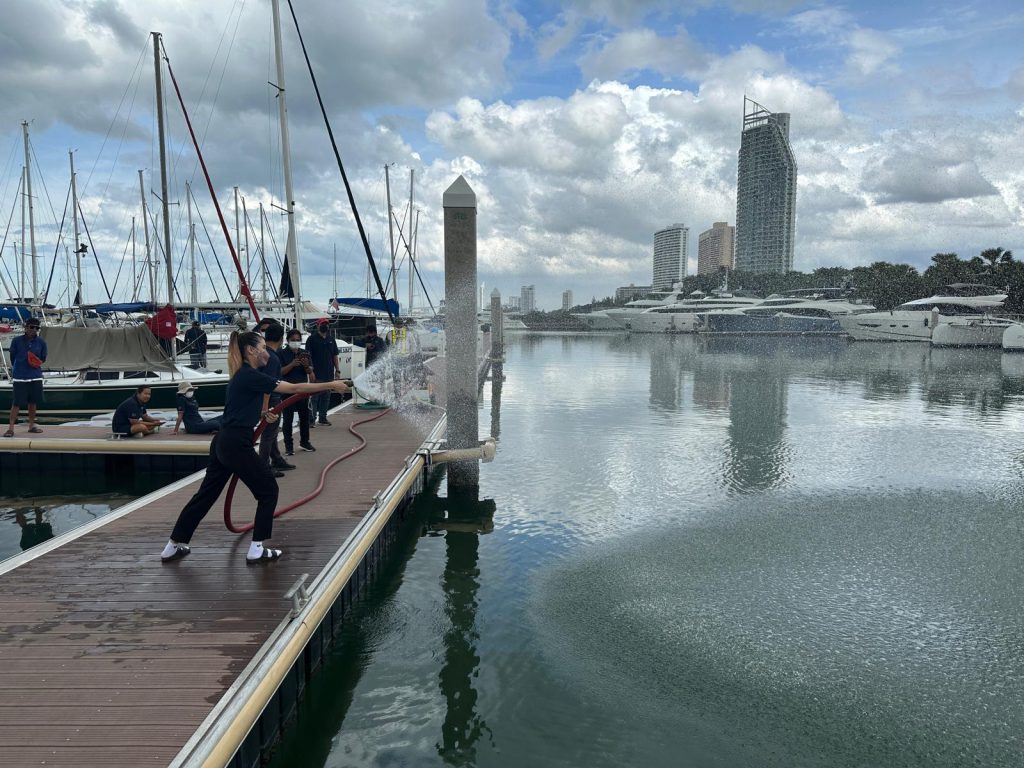
Protect the inside of your boat
Taking care of the inside of your boat is just as important when it comes to fire protection.
Cigarettes
• Keep cigarettes or pipes away from things that could catch fire easily such as curtains.
• Never smoke when refueling or changing a gas bottle.
• If smoking is allowed onboard, make sure it is done in a well-ventilated area and away from any potentially flammable materials.
Safe cooking and heating
• Turn cooking appliances off properly after use.
• Keep the cabin well-ventilated to avoid a build-up of carbon monoxide.
• Use spark devices to light gas cookers instead of matches or lighters.
• Do not barbecue on boats as the heat from the hot charcoal and loose embers increases the risk of setting fire to the deck.
Fire Extinguishers
• Ensure that your extinguishers are well-serviced and placed at appropriate positions.
Smoke alarm
• Install smoke alarm(s) at any area a fire could start.
Battery powered toys, appliances and charges
The rise in battery powered toys has coincided with more fires on board boats, along with battery charges being left on for long periods of time or getting wet.
• Ensure surrounding area is dry while recharging or connected to power
• Don’t charge in confined and hot spaces
• Monitor the charging time and turn off once fully charge to prevent over heating
• Check to see if charger or product is becoming too hot.
• Buy products from reputabile suppliers with safety certificates
Safety





